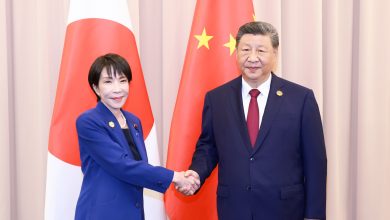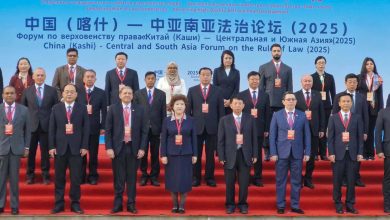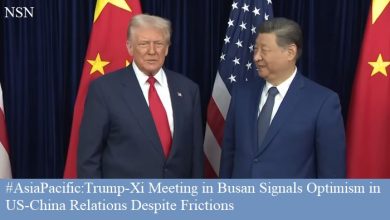Chinese Firm Explores Investment Opportunities in Housing Sector of Pakistan NSN Asia 2025
Chinese company DongKai International Investment calls on Federal Minister for Housing and Works, Mian Riaz Hussain Pirzada

-
Chinese Delegation Explores Investment Opportunities in Pakistan’s Housing Sector
-
Chinese company DongKai International Investment calls on Federal Minister for Housing and Works, Mian Riaz Hussain Pirzada
- Islamabad: A high-level Chinese business delegation, led by Mr. Yao Yu, CEO of DongKai International Investment and representing a consortium of leading construction and technology firms, called on Federal Minister for Housing and Works, Mian Riaz Hussain Pirzada, at the Ministry today.
-

Chinese Firm Explores Investment Opportunities in Housing Sector of Pakistan NSN Asia 2025
Senior officials, including Secretary Housing and Works Mr. Hamid Yaqub Sheikh, Additional Secretary, CEO Pakistan Housing Authority Foundation (PHAF), and Director General Federal Government Employees Housing Authority (FGEHA), were also present during the meeting.
The visit aimed to explore collaborative opportunities in Pakistan’s housing sector, particularly in adopting new construction technologies and building materials. Minister Pirzada warmly welcomed the delegation and reaffirmed the strong bonds of Pak-China friendship. He emphasized the government’s commitment to innovation in the housing sector, underscoring the importance of prefabricated and modular construction technologies, which are essential for ensuring sustainability, reducing costs, and speeding up project delivery.
Mr. Yao Yu showcased various innovative housing models and cutting-edge construction techniques. He shared that the consortium specializes in prefabricated construction—an advanced and efficient building method known for its cost-effectiveness and time-saving benefits. He also proposed establishing a Dragon Mart-style commercial complex in Pakistan, modeled on the successful wholesale trade center in Dubai. This initiative, he noted, could serve as a catalyst for enhancing Pak-China trade ties, promoting urban development, supporting SMEs, and generating employment.
Subsequently, the DG, FGEHA, and CEO, PHAF delivered presentations outlining key investment opportunities, prospective joint ventures, and public-private partnership models. They highlighted various strategic development locations including the Islamabad Capital Territory, Quetta, Karachi, Peshawar, Gwadar, and Gilgit-Baltistan.
The meeting concluded with mutual interest in furthering cooperation, translating shared visions into actionable projects, and strengthening economic collaboration between the two countries.






